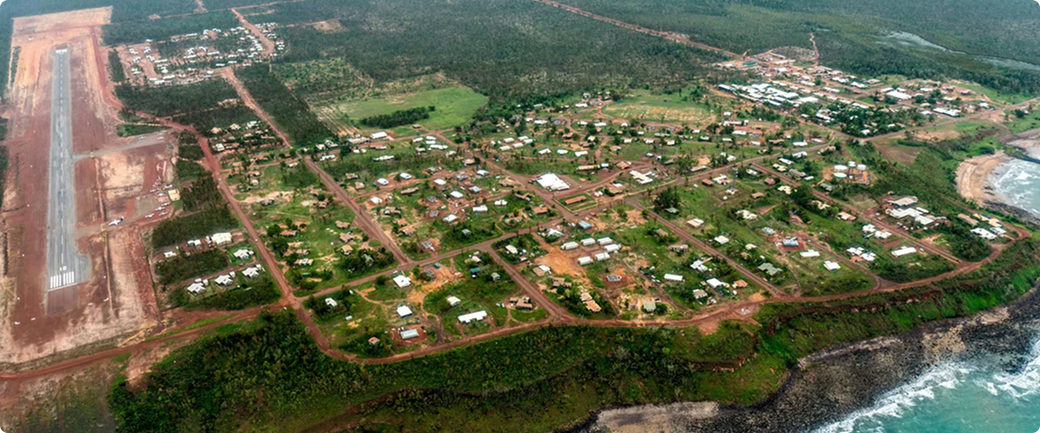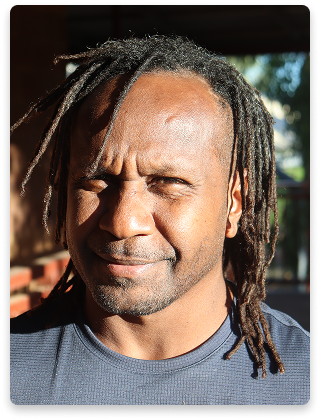
About Wangarr Creations
Culture and History of Elcho Island

The geographic and cultural setting that this story has developed, and is based on, is East Arnhem Land, in the far north of the Northern Territory in Australia. Yolŋu is a general term used for the Indigenous / First Nations people here. Yolŋu means person, but it is now applied to all Indigenous people and Balanda is the word used for non-Indigenous people. Australia’s Indigenous people are recognised as having the longest continuous culture in the world, estimated at 60,000 years. Within this general Indigenous culture, over 250 languages were spoken prior to 1788, each with its own stories and culture, and over 800 dialects spoken across Australia. Today, there are about 120 languages spoken, and 90% of these are considered as endangered. In Arnhem Land the general term for Indigenous languages is Yolŋu matha (people’s tongue) and there are many languages within this. Language and culture are strong. This poem is using some words from the Djambarrpuyŋu language.
In the 1940’s Christian missions moved in to Elcho Island and other parts of Arnhem Land. The Methodist Church (now the Uniting Church in Australia) has had a key and historic role of working with the Yolŋu. The traditional Yolŋu culture is strong. The language use is strong. Ceremonial life is strong. Missionaries did not take try to stop the culture. The Yolŋu land has never been ceded. East Arnhem Land has many remote Indigenous communities, among the largest of which are Yirrkala on the Gove Peninsula and Galiwin’ku on Elcho Island. Harold and Ella Shepherdson moved from Milingimbi (another remote community) as the first missionaries to establish the base at Galiwin’ku. They did an amazing work and were loved by all.
Elcho Island has been a significant place for Yolŋu Christians for several decades because of the ‘Revival’, as it is known, that occurred there in 1979/80, where about 800 people surrendered their lives to Jesus and Yolŋu went out across Australia sharing their faith and the salvation message of Jesus. Also of significance was the ordination of Rev Dr Djiniyini Gondarra OAM as a local person, and his work in the community before, during, and after the Revival. The work of Bible translation on the island is also a wonderful story, as large parts of God’s word, particularly the New Testament, is now in several languages. All of these components have added to a significant history of Christianity on Elcho Island.
With the support of missionaries, the Yolŋu remained strong in their cultural beliefs. It is only through the cultural aspects that the people had that gave the Yolŋu understanding into the spiritual revelation of the bible. There are now nearly 3000 people living on this island. They have a rich cultural and Christian heritage.
The Creators

Marcus Mungul Lacey
I am a fully initiated Yolŋu man with Torres Strait Islander heritage through my father. I have been blessed to be part of a big Dhuwa/Yirritja family while I grew up in Mata Mata Homeland with my mother’s-side family. My upbringing involved a lot of cultural insight and I have been exposed to a lot of cultural activities in my early years. I first started speaking English when I was 9 years old, which was my seventh language at the time. My Balanda step-father gave me knowledge to understand his world.
Since school I have worked as: Radio Broadcaster, Galiwinku airport officer, Painting and Carpentry, 15 years working in the Education sector at Galiwinku, Ranger, and currently I am a Mala Executive Officer with Marthakal Aboriginal Corporation working alongside the CEO to bring transparency across the Board for the Yolŋu people within the Marthakal Region.
I have a Masters in Indigenous Knowledges (Mawul Rom) from the Charles Darwin University, so I am a qualified mediator from two cultural worlds. I have a long list of awards and accolades in the areas of science, education and cultural knowledge. I am married to Dianne. I have 6 children and 4 grandchildren, and currently live at Galiwinku on Elcho Island.

Paul Wurrumdhun Tolliday
I am a Balanda (non-Indigenous) man who lives in Alice Springs (Mparntwe) in Central Australia. I have lived in Australia’s Northern Territory for over 30 years now, at different times and in different locations. I am a Teacher by trade and training, who has worked with Indigenous people for over 40 years. While teaching in Darwin in 1993, one of my students was Marcus Lacey. In 1996, Marcus and his family ‘adopted’ me into theirs, and for over 30 years we have regularly talked and worked on projects together. Because of this connection I am part of the Gumatj and Dhalwaŋu clan, and Marcus gave me the name of Wurrumdhun (meaning, the calling of the spiritual ancestors).
I had the honour of participating in the Mawul Rom Ceremony in Darwin, in 1998, at the first NYRC that I organised. I then played a significant role in organising the Mawul Rom Ceremony at Galiwinku, Elcho Island, for several years. I have 4 children (3 sons and a daughter) and 4 granddaughters. I am currently teaching at Yirara College, a Lutheran Indigenous Boarding School in Alice Springs.

